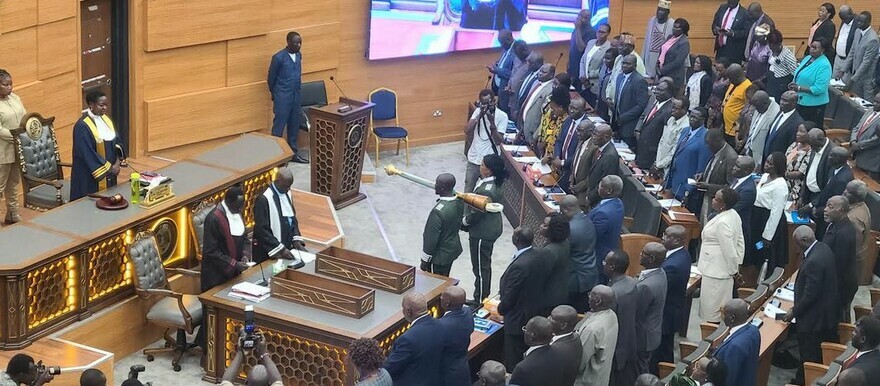A member of South Sudan’s parliament representing Jonglei State and the Other Political Parties (OPP) has decried the discrepancies in the remuneration of South Sudanese employees compared to foreign nationals, despite having the same job descriptions.
On Monday, Mayen Deng Adier raised the concern during a question session, where he questioned the Minister of Labor, James Hoth Mai, about why most companies and non-governmental organizations (NGOs) pay South Sudanese employees significantly lower salaries than their foreign counterparts for the same work.
According to Adier, numerous complaints have been raised about capable South Sudanese earning significantly less than their foreign colleagues.
“You find a South Sudanese doing the same job as a foreigner, but while the South Sudanese earns one hundred dollars, the foreigner earns up to two thousand dollars,” Adier said, adding that the issue has been brought to the attention of the relevant ministries but remains unresolved.
Adier also questioned why companies and NGOs tend to hire more foreigners than South Sudanese, despite labor laws requiring that 80% of the workforce in the private sector be nationals.
“There is this rule of 80 and 20%. If a foreign company comes to South Sudan, they are supposed to employ up to 20% of their nationals, with the remaining 80% being South Sudanese. Similarly, if it’s a Kenyan firm, it should have 20% Kenyan employees and 80% South Sudanese,” Adier explained.
“In addition to this regulation, positions designated for human resources should be filled by South Sudanese. However, this has not been happening. In many companies, you find that 80% of the workforce are foreigners,” he added.
In response to these concerns, James Hoth Mai, the Minister for Labor, refuted the claims, stating that currently, out of 34,000 workers in the NGO sector, 30,000 are South Sudanese nationals. Mai assured parliamentarians that his ministry is making efforts to implement these provisions.
“It’s clearly stated that 80% of employees in any company should be South Sudanese nationals,” emphasized the Minister. He added, “I believe we are following that, but sometimes we talk too much. Our people talk too much,” a phrase –‘Talk too much’ –among government officials when referring to citizen complaints.
“We have had many cases raised, whether here in parliament or on social media. In the NGO sector, for instance, out of 34,000 workers, 30,000 are South Sudanese,” he stated.
Mai further acknowledged that South Sudan currently lacks a law on minimum wage but assured that the ministry is working on it.




